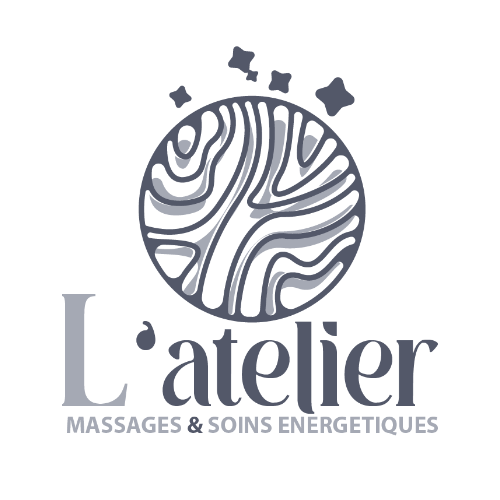What is Reiki?
- Franck de L'Atelier

- Nov 17, 2021
- 3 min read

Reiki is a Japanese healing method belonging to the energy approach. In this article, you will find out what this therapy is, its principles, history, benefits, practice and contraindications.
In Japanese, Rei means universal and includes matter, soul and spirit. Ki (or Qi) refers to the vital energy that circulates in us, as understood by oriental medicines such as Traditional Chinese Medicine and Ayurveda. Reiki is therefore the putting or re-contacting of "universal energy" and our own "vital force" in order to awaken a dynamic process of healing.
The main principles
Reiki belongs to the so-called energetic approaches, in which the practitioner intervenes on the vibratory field of the person. This skill is usually associated with meditation techniques or disciplines of spiritual practice such as have existed, in one form or another, in the majority of cultures throughout history. But Reiki differs from these traditional practices since it is stripped of all religious ties and it does not require a particular spiritual path.
The concepts underlying energy therapies such as Reiki have theoretical commonalities with various models proposed in modern physics1. Of course, none of these models have been experimentally linked to medicine or clinical outcomes.
The models proposed in bioelectromagnetism, in quantum physics or according to the theory of superstrings, for example, are consistent with the oriental writings. These suggest that an extremely subtle vibration could form the substrate of matter as we know it. It could therefore have a role to play in health and disease.
In a Reiki session, the practitioner channels the universal energy and, using esoteric symbols and sacred sounds, transmits it by placing his hands on different parts of the patient's body. The hands do not have to come into direct contact with the patient's body. Energy transmission could even be done remotely. The universal energy would also have its "own intelligence", which allows it both to go exactly where the patient needs it, and not to cause any unwanted side effects. The practitioner's personal energy is never meant to interfere with the process.
The benefits of Reiki
In recent years, at least 4 systematic reviews have been published on the therapeutic effects of Reiki 2-5. However, the methodological quality of the research carried out to date is deficient. Scientific evidence is therefore currently insufficient to confirm that Reiki is an effective therapeutic approach in clinical practice.
Decrease stress and depressive symptoms. Reiki is used by some practitioners to reduce anxiety during surgery or in nursing or retirement homes, for example. It has also been reported to help reduce stress and periods of depression in the elderly.
Improve the quality of life for people with cancer. Several studies have shown the beneficial effect of Reiki on fatigue, pain, anxiety and the quality of life of individuals suffering from cancer 12 13
Decrease memory and behavior problems. A study of patients with either Alzheimer's disease or mild cognitive impairment showed improved mental function as well as reduced memory and behavior problems in Reiki group participants. But these results should be considered preliminary due to the absence of a placebo group (mimed Reiki, for example) and the small number of participants.
Reduce pain: several studies have shown the beneficial effects of Reiki on pain. A randomized study of individuals needing to have wisdom teeth extracted showed that Reiki sessions after the procedures significantly reduced the pain they felt7. In another study of women presenting for hysterectomy, Reiki was found to reduce analgesic use and improve pain in participants9.
Contribute to rehabilitation following a stroke. A clinical trial evaluated the effectiveness of Reiki as an addition to the rehabilitation protocol in hospitalized patients with stroke6. The results indicated that Reiki would have a limited and selective effect on mood and energy level. On the other hand, it would not have a significant effect on functional independence in daily activities like eating, dressing, moving, etc., nor on depression.

.png)


Comments